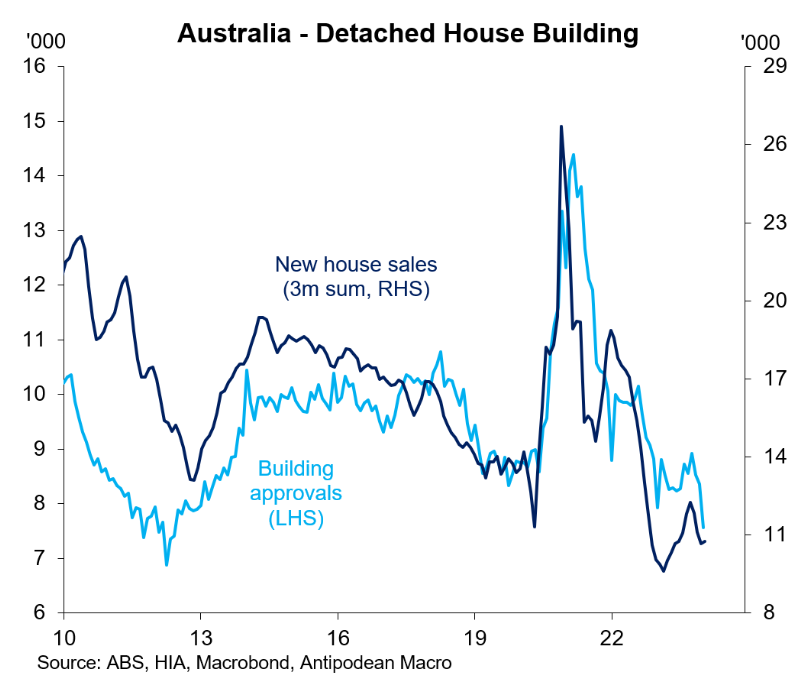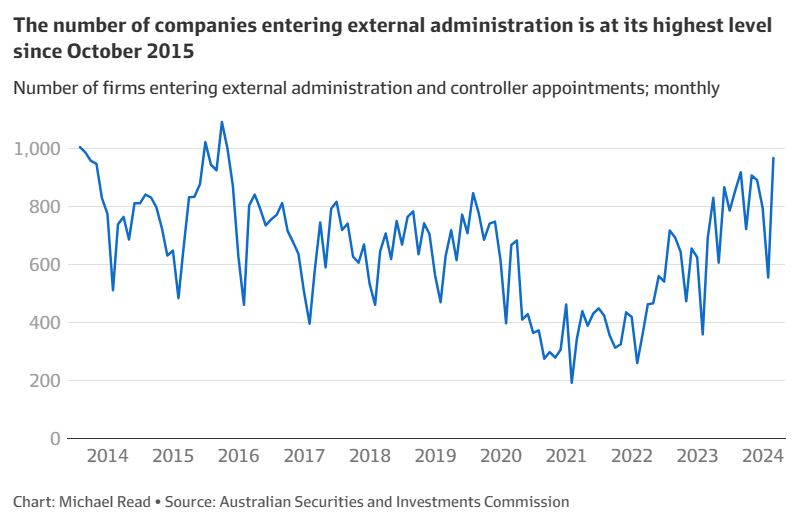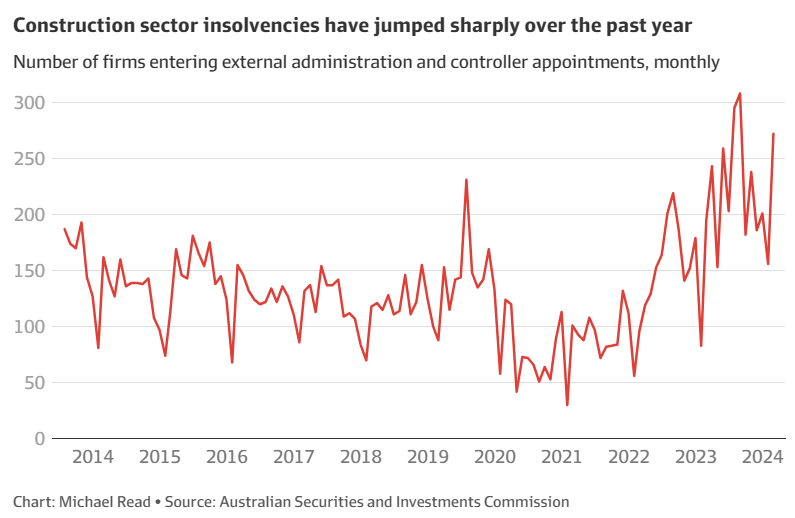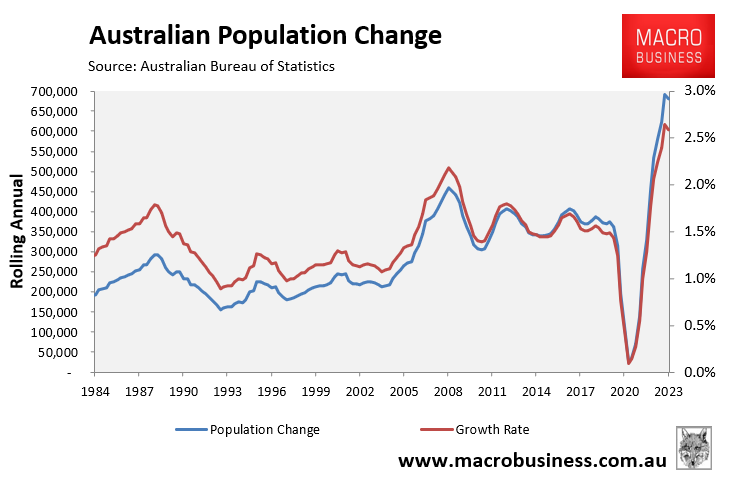The latest dwelling approvals and new home sales data suggests that Australia will badly miss the Albanese government’s target to build 240,000 homes per year for five consecutive years.

Only 163,000 homes were approved for construction in the year to January 2024, which is 77,000 below the government’s construction target.
The reasons for the low rates of construction are obvious.
First, high interest rates has dampened buyer demand and made it more expensive for developments to gain financing.]
Second, the home building industry is suffering from acute labour shortages, in part because they are competing for workers against state government infrastructure projects.
Finally, materials costs have surged since the pandemic, meaning home builders can’t turn a profit and are going broke.
On the final point, new data from the Australian Securities and Investments Commission (ASIC) shows that monthly corporate insolvencies lifted to their highest level since 2015 in February, with 967 companies entering administration in February, up 40% on the same month last year:

The embattled construction sector recorded the largest increase in insolvencies over the past 12 months, with 270 construction firms going under in February 2024, up from 195 for February 2023 and nearly triple the number that went bust in February 2022:

Meanwhile, Australia’s population continues to grow like an out-of-control lab experiment, with 680,000 new residents recorded in 2023:

With new housing construction rates falling at the same time as Australia’s population is growing at a furious rate, the nation inevitably faces a worsening housing crisis.
Net overseas migration must be drastically cut. Otherwise, Australia faces a housing catastrophe.

